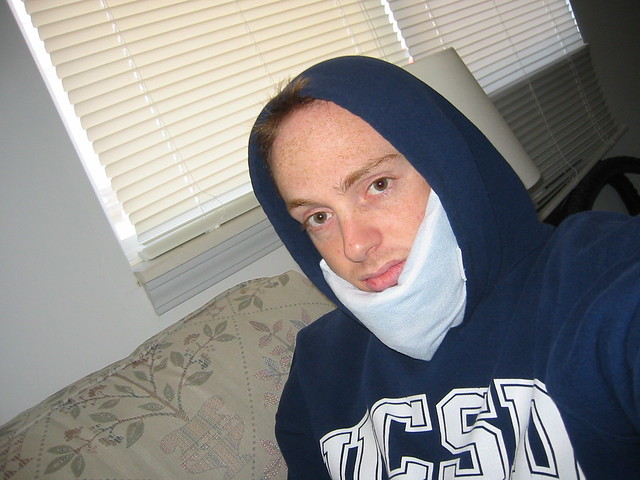An interesting article titled “The Effectiveness of the Cold Therapy (cryotherapy) in the Management of Inflammatory Parameters after Removal of Mandibular Third Molars: A Meta-Analysis,” written by Fernandes et al. appears in the International Archives of Otorhinolaryngology vol. 23, pp. 221–228, 2019. The authors set out to compare whether cryotherapy also as known as cold therapy has an effect on clinical outcomes such as pain, edema (swelling), and trismus (mouth opening) after wisdom teeth surgeries.
The authors searched scientific literature for clinical trials on the use of cold therapy for pain, trismus, and edema following wisdom teeth surgery. They searched in electronic databases covering the time period up until March 2018. The authors first identified 1,080 studies. They then removed duplicates and articles that did not meet their inclusion criteria. They authors arrived at 11 studies that met their inclusion criteria for their qualitative synthesis and included four of these in their meta analysis.
The results of the 11 studies were mixed. Some studies suggested cryotherapy
can reduce pain, edema, and is associated with a low amount complications for after wisdom tooth removal. Other studies showed that cryotherapy does not diminish swelling, trismus or pain after removal of impacted wisdom tooth. In addition, the risk of bias among the 11 included studies was high. For the meta analysis using the group of four studies two of these studies had data extracted to show that cold therapy effectively reduced swelling two days after surgery, however the results were no longer significant seven days after surgery. Furthermore, it was found that on all of the first, second, and seventh days after surgery cold therapy showed no significant reduction of trismus.
In their analysis the authors point out that the scientific efficacy of cold therapy is still questioned. The authors state:
“As the results of the studies found in the literature show, it is still hard to allege the real effectiveness of cryotherapy.”
However, the authors do point out that there is a scientific basis for cold therapy on pain since when the temperature falls below 14°C, the transmission of nerve impulses along sensory and autonomic nerves is blocked which causes local vasodilatation and paresthesia, resulting in reduced painful symptoms.

The authors also point out that in different studies different methods to apply cold therapy were used. For example in one study a probe was used to apply cold, in another study a thermal wrap was used, and in other studies cold packs were used. Thus it is possible the particular method to apply cold after wisdom teeth surgery could play a role on the effect of pain, swelling, and trismus. The authors also point out that of the 11 studies they included in their qualitative analysis, only in 5 did the researchers attempt to make sure the patients properly applied the cold therapy. The authors suggest future studies should focus on a standard method to apply cryotherapy and that patients should either record when they apply cold therapy in a diary or be monitored in a clinic. Furthermore, future studies should use standard methods to obtain data such as using the visual analog scale (VAS) score for pain and a three-dimensional evaluation for swelling.
In the end the authors feel their exploration of the scientific literature showed that cold therapy used after wisdom teeth removal can benefit pain and swelling in the first few days. However, they did not find any evidence to support that cold therapy can help with trismus after wisdom teeth surgery.
